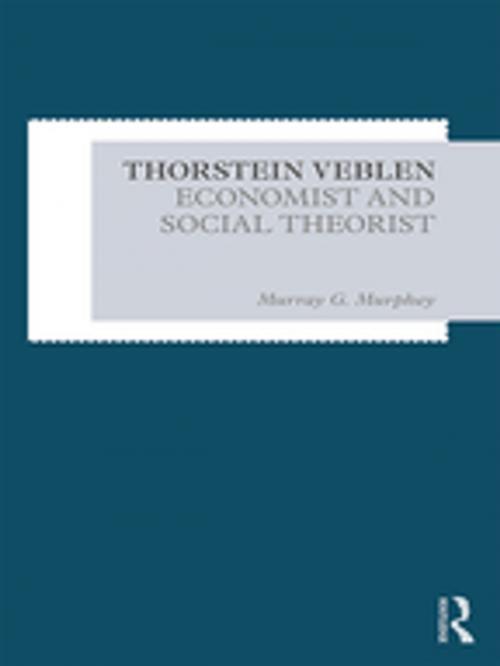Thorstein Veblen
Economist and Social Theorist
Nonfiction, Social & Cultural Studies, Social Science, Sociology| Author: | Murray G. Murphey | ISBN: | 9781351244374 |
| Publisher: | Taylor and Francis | Publication: | May 20, 2018 |
| Imprint: | Routledge | Language: | English |
| Author: | Murray G. Murphey |
| ISBN: | 9781351244374 |
| Publisher: | Taylor and Francis |
| Publication: | May 20, 2018 |
| Imprint: | Routledge |
| Language: | English |
In his latest book, scholar-historian Murray G. Murphey exhaustively explores the life and theory of Thorstein Veblen (1857–1929), whom, many scholars agree, remains one of the leading social theorists of all time, if not also one of the more confounding. Murphey’s account begins with a brief economic history of nineteenth-century America, wherein he examines the conditions that formed Veblen’s ideology. With that understanding, the author studies Veblen’s personal history and brings to the fore his foundational ideas on human psychology, race, his theory of knowledge, and his analysis of social evolution. In the book’s later chapters, Murphey considers Veblen’s writing through the scope of his major volumes – The Theory of the Leisure Class, The Theory of Business Enterprise, and Imperial Germany and the Industrial Revolution, among others.
Spanning the latter stages of the nineteenth century into the first several decades of the twentieth century, Murphey traces Veblen’s radical economics and thinking within the broader context of America’s economic theory. In so doing, he upholds Veblen’s influence on the canons of economics and social science, and importantly, he attempts to resolve the lingering mystery behind one of America’s more puzzling and influential theorists.
In his latest book, scholar-historian Murray G. Murphey exhaustively explores the life and theory of Thorstein Veblen (1857–1929), whom, many scholars agree, remains one of the leading social theorists of all time, if not also one of the more confounding. Murphey’s account begins with a brief economic history of nineteenth-century America, wherein he examines the conditions that formed Veblen’s ideology. With that understanding, the author studies Veblen’s personal history and brings to the fore his foundational ideas on human psychology, race, his theory of knowledge, and his analysis of social evolution. In the book’s later chapters, Murphey considers Veblen’s writing through the scope of his major volumes – The Theory of the Leisure Class, The Theory of Business Enterprise, and Imperial Germany and the Industrial Revolution, among others.
Spanning the latter stages of the nineteenth century into the first several decades of the twentieth century, Murphey traces Veblen’s radical economics and thinking within the broader context of America’s economic theory. In so doing, he upholds Veblen’s influence on the canons of economics and social science, and importantly, he attempts to resolve the lingering mystery behind one of America’s more puzzling and influential theorists.















